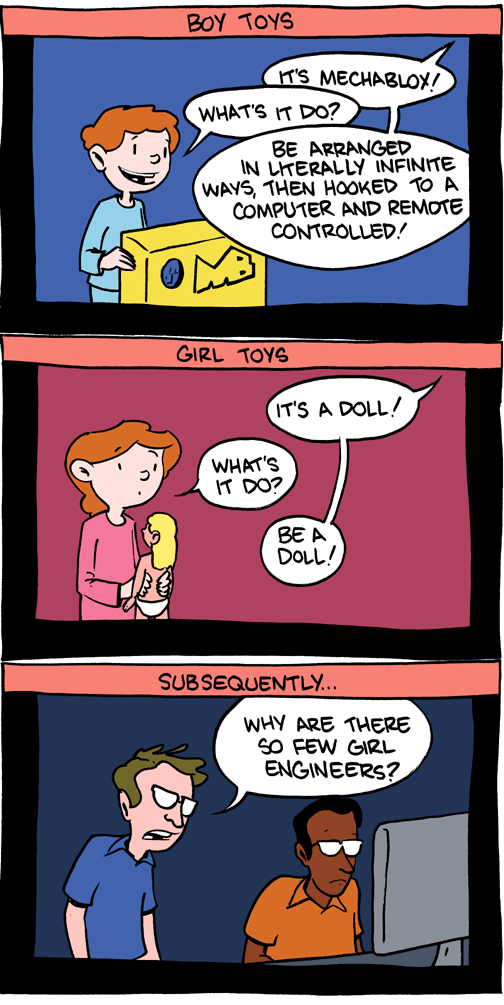So they say sexism is a huge problem in modern video games[1]. Sure, it is a common problem, but this is the area that has become very loud lately. Allegedly there are too many sexualized woman characters and almost no really strong female characters. This problem manifests itself mainly in the production of large companies like Eidos Interactive (Hitman, Tomb Raider), THQ (Broken Sword 4), Rockstar (all GTA after GTA2) and others of the same ilk (Command and Conquer, Mass Effect, Jagged Alliance, Super Mario). Oddly enough, popular free games tend not to have this problem, except for some massively-multiplayer games (League of Legends, almost all MMORPGs). They either don’t have any women or they are actually comparable in usefulness and body armour (no skimpy clothing) to men. This may be because of the limited budget – it’s good to get the game running, aesthetics is not that important. Wesnoth and UFO:Alien Invasion are excellent examples of this. Sure, there some paid games that don’t have sexism problems, The Sims is rather well done in that respect, as are Portal and Mirror’s Edge. But these are minority examples.
Interestingly enough, feminists have categorized the few female characters in modern media – movies, TV shows, games and books.
The point is also made by the Bechdel test of female presence – in most video games with conversation there is rarely any conversation between female characters about anything else than men. This can be explained by the fact that most protagonists in games are men and in general, the only conversations depicted in any media tends to be between the protagonist and someone else. Hence, if there is a male protagonist, most or all communication between characters involves a male character – the protagonist.
Interestingly enough, when there are strong female characters, people find side-characters that are dubbed feminist by twisting the definition thereof.
I’m surprised (yes, I) how many people do not understand the definition of feminism. It’s not about getting women to power or dragging men down, it’s about making both genders equal. Though they are not. Sure, there are some extremist groups that want women to lead instead of men (as opposed to ‘next to men’), as there are extremist groups that want to ban birth control or kill all Muslims. There are always extremes, but that should not stand in the way of the credibility of actually reasonable activist groups that paint the world black, just not as black as the extremes. After all, even the reasonable groups say that there is a huge problem. And that fear is what they use to get power, similar to what many male pro- and antagonists do.
A question presents itself: is gender inequality still a big problem? In reality, the hysterical, bubbly stereotype is fading quickly as more and more women get educated and better jobs. Merkel is a good example.
Lest we forget, girls outnumber boys in terms of being educated. Well, up to Bachelor’s degree. Once that has been achieved, the number of women being educated sharply falls and looking at doctoral degrees, men outnumber women. This is quite understandable, then why is it so perplexing for feminists that most high-paying positions are occupied by men with PhD-s? Thinking that higher education means better qualifications for higher-paying jobs and that more men get higher education should fix this problem.
And in the topic of ‘science: it’s a girl thing’, I present this nice explanation, courtesy of SMBC:

The low number of women in higher echelons and science appears to be explained by how the society works. It is a balance created by democracy itself. Thus, the question ‘is gender inequality still a problem?’ appears to be answered. So cheer up.
It is not easy to make it in the modern world, it doesn’t matter if you are male or female.
No comments:
Post a Comment